Screening from Series Born with Cinema: Gaumont at 130
The Passion of Joan of Arc (La passion de Jeanne d'Arc)
Starts at $5
Wed, Sep 17, 2025
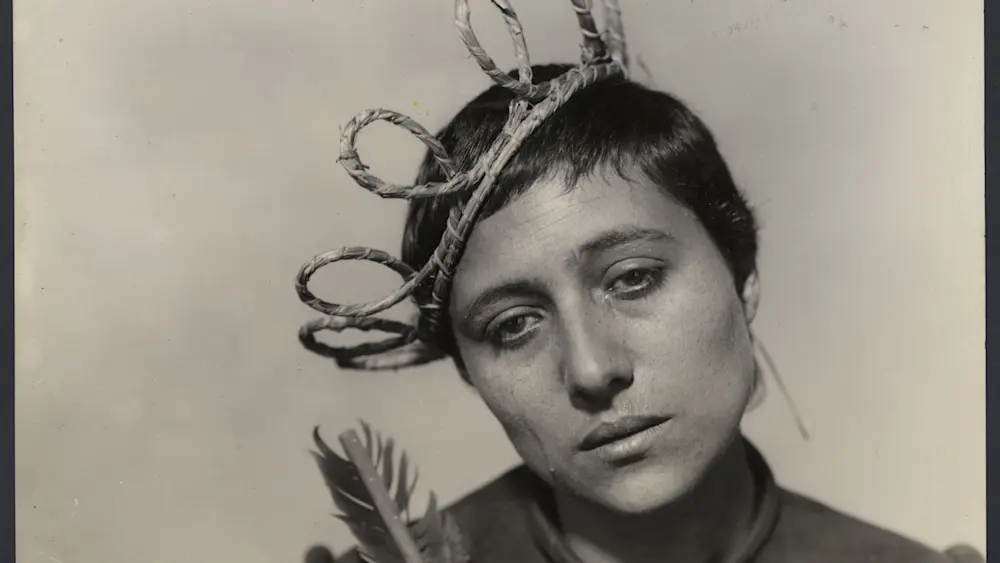
Know Before You Go
Plan your Visit
Accessibility
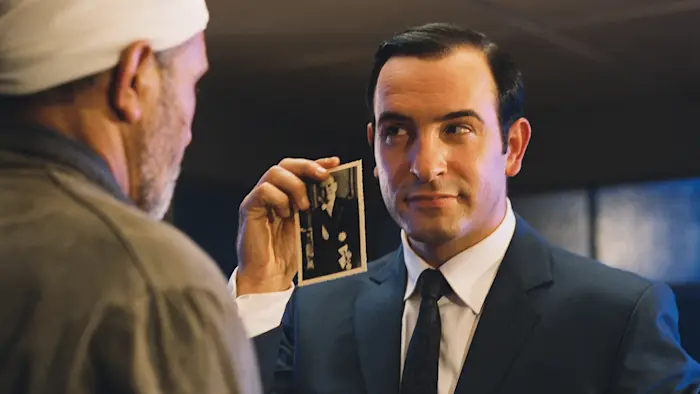
Screenings
OSS 117: Cairo, Nest of Spies (OSS 17: Le Caire, nid d'espions) in 35mm
Michel Hazanavicius’s directorial debut is based on a fictional character created by Jean Bruce—Hubert Bonisseur de La Bath, a French secret service agent known by his code name, OSS 117. This chapter of the OSS 117 film franchise is set in 1950s Egypt, starring Jean Dujardin as the charming (and slow-witted) spy who goes undercover for the investigation of his friend and colleague’s sudden disappearance. This spy comedy is a delightful homage to the James Bond series, equipped with exuberant production design and a musical score that contributes to the film’s vibrant overtones.
35mm
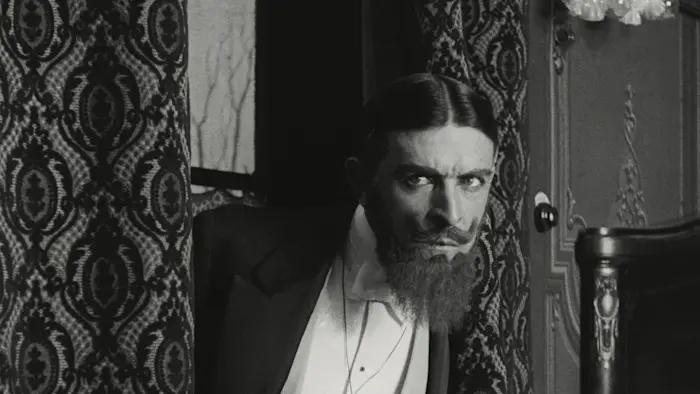
Screenings
Fantômas: In the Shadow of the Guillotine (Fantômas I: A l'ombre de la guillotine)
Introduced by Academy Governor Howard A. Rodman
DCP
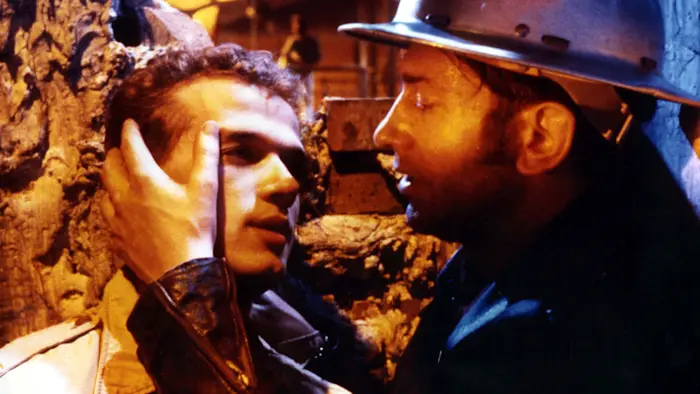
Screenings
Querelle
Based on Jean Genet’s 1947 novel Querelle de Brest, German auteur Rainer Werner Fassbinder’s final feature transports us to a visually stylized and highly eroticized realm of pure aesthetics. Released posthumously following Fassbinder’s tragic death at 37, this deeply personal work uses the artificial confines of a sound stage to create a heightened mood, pushing the cinematic form to its breaking point. The film charts the journey of its antihero, Querelle, through a labyrinth of illicit drug deals, high-stakes gambling, and violent acts in a seedy French port town, delving into the raw dynamics of male relationships, where desire and aggression continually intertwine. Saturated in bold colors and pulsing with eroticism, Querelle stands as an unapologetic, provocative testament to Fassbinder’s enduring influence as a master of cinematic confrontation.
DCP
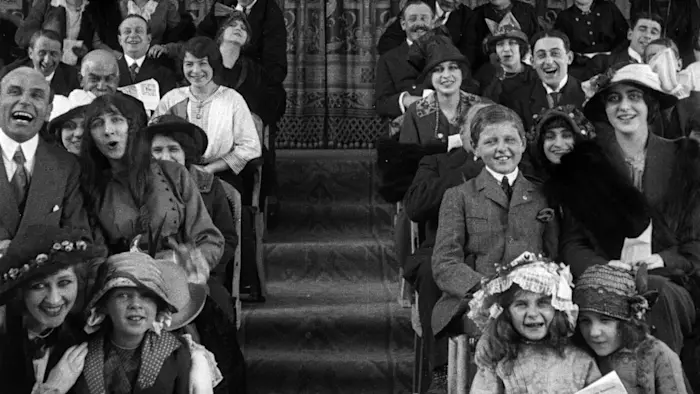
Screenings
Pioneers of the Screen: Gaumont and the Origins of Motion Pictures
Live accompaniment by Michael Mortilla.
DCP
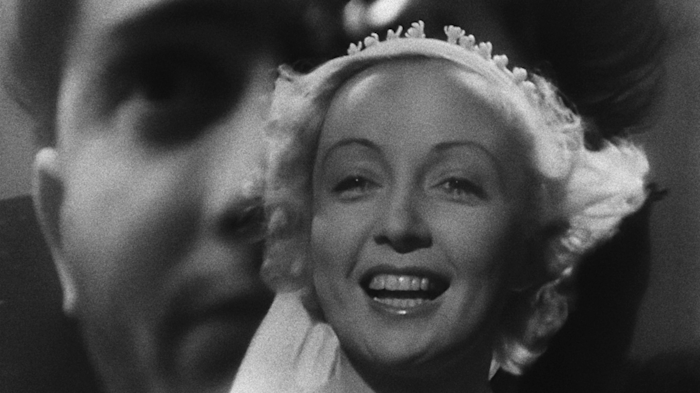
Screenings
L' Atalante in 4K
Walking the line between realism and surrealism, Jean Vigo’s only feature-length film, L' Atalante, is considered an essential work of cinema and admired by many filmmakers, including the pioneers of the French New Wave. The film poetically tells the story of newlyweds Jean and Juliette, who embark on their new life together on a barge named L’atalante. Vigo’s minimal visual approach elegantly portrays the characters in harmony with the elements—the dark water of the canal, the omnipresent fog of the waterfront, and the clear sky above—and plays beautifully with cinematographer Boris Kaufman’s bold frames.
4K DCP
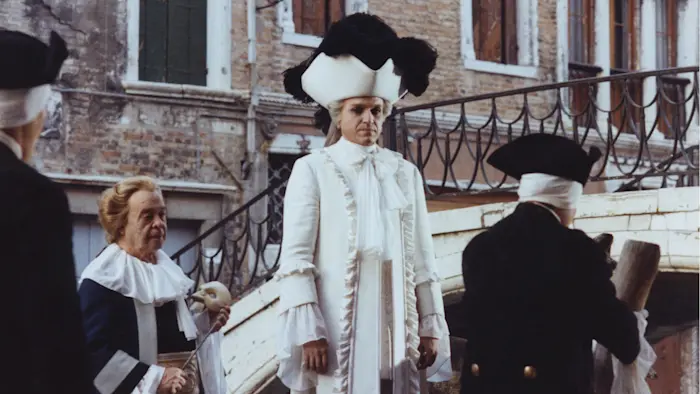
Screenings
Don Giovanni
An adaptation of one of Mozart’s greatest operas, Joseph Losey’s 1979 film tells the tale of Don Giovanni, a serial seducer whose lust and cruelty wreaks havoc on his life and the lives of those around him. Themes of love, death, and excess establish the high-drama world the characters inhabit, punctuated by its use of operatic song. Here, the translation of opera onto film delivers a product that is visually resplendent, heightening the source material’s comedic strength and musical prowess.
DCP
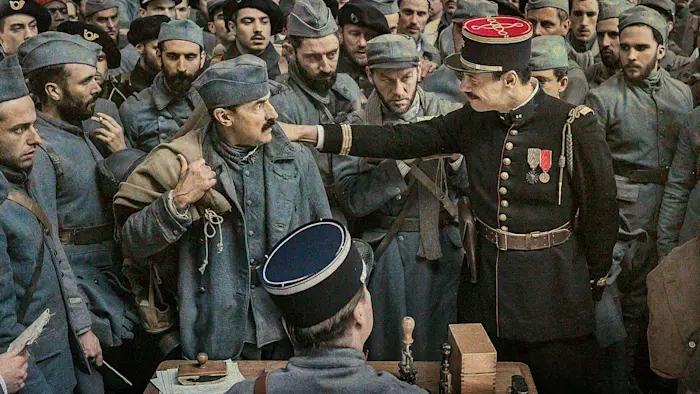
Screenings
See You Up There (Au revoir là-haut)
Albert Dupontel finesses his artistries in directing and acting in his 2017 feature centered around two soldiers—former bookkeeper Albert (Dupontel), and Edouard (Nahuel Pérez Biscayart), a gifted artist whose face is disfigured during World War I. Now a veteran, Edouard—with Albert’s help—plans a grand memorial scheme targeting the families of war victims. Adapted from the novel of the same name by Pierre Lemaitre, the film showcases a fantastical world, guided by dazzling production design as it delves into the dark territories of war and trauma while retaining glimpses of hope, redemption, and loyalty to humanity.
DCP
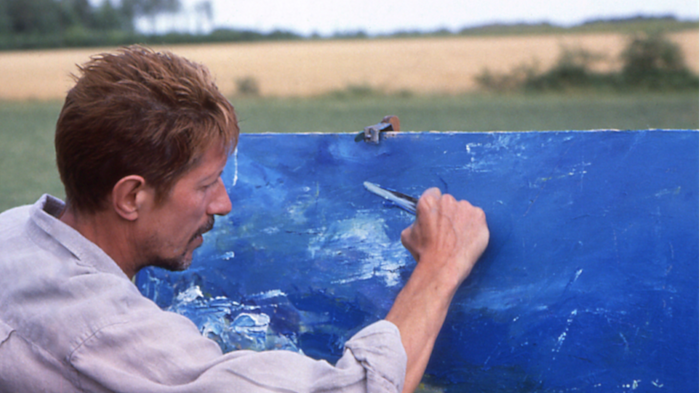
Screenings
Van Gogh
Maurice Pialat’s examination of the legendary Dutch painter Vincent van Gogh focuses on the artist’s inglorious battle of the everyday—his incurable headaches, deteriorating mental and physical health, and troubled personal relationships—rather than emphasizing his grandiose artistic vision. In depicting Van Gogh’s last few months in Auvers-sur-Oise before his death, the film maintains a respectful gaze on one man’s life, surveying and observing the artist’s routine without artificially dramatizing his activities or the aesthetics of the cinematic language.
DCP